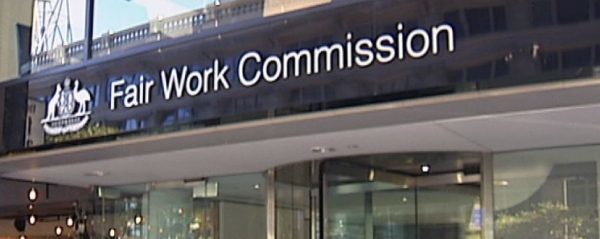GMH Legal has recently succeeded in a significant unfair dismissal case heard before the Fair Work Commission. The Applicant, Mr Michael Ramsey, was an IT manager for CatholicCare in the Roman Catholic Diocese of Parramatta.
Mr Ramsey had been a full-time IT manager at CatholicCare since July 2010. During the course of his employment with CatholicCare, Mr Ramsey maintained a high standard of work, and was well-liked by his colleagues with witness statements and evidence tendered in Mr Ramsey’s favour being given by two former CEO’s of CatholicCare and the religious consecrated members of CatholicCare.
Mr Ramsey was summoned by the HR Manager of the Roman Catholic Diocese of Parramatta for a work performance meeting on three occasions. These meetings were outside of his usual place of employment and were scheduled to take place in the Diocesan Chancery office. On the first two occasions Mr Ramsey was kept waiting by the HR Manager for four hours each time as the HR Manager was too busy to meet him. Vice President Hatcher in his Fair Work Commission judgement dated 27 January 2017 characterised the HR Manager’s treatment of Mr Ramsey “arrogant and disrespectful”.
After a faultless almost seven year employment period with CatholicCare, Mr Ramsey was given two warning letters on the same day by CatholicCare, and was then terminated three (3) days later when the HR Manager for the Catholic Diocese of Parramatta, accused Mr Ramsey of pushing her on the shoulder.
The two warning letters given to Mr Ramsey were found to be “issued without any proper justification” and “a completely excessive response” by Vice President Hatcher.
Vice President Hatcher went on to state that the HR Manager “did not attempt any independent investigation or analysis” of any of the employment matters of concern prior to issuing the warning letters to Mr Ramsey. On issuing two warning letters on the same day, Vice President states “additionally, the process of constructing and delivering two separate warning letters at the same time, instead of one letter, was entirely artificial and, I infer, intended to build up an adverse employment record for Mr Ramsey.”
The allegation of a push
On 9 May 2016 the HR Manager alleged that Mr Ramsey pushed her after the following conversation allegedly occurred:
- HR Manager: You know what, you are not going to stay here, I will sack you.
- Mr Ramsey: Why? What have I done wrong?
- HR Manager: What the fuck do you think you are?
- Mr Ramsey: Watch your words, this is discrimination and bullying to me. Lee is here and witness[ed] your F word.
- HR Manager: I didn’t say anything and Lee didn’t hear anything.
- Mr Ramsey: Are you Catholic, and you are at the Diocese of Parramatta and working here with words of God helping people, you will never go away from God.
In the HR Manager’s version of events, Mr Ramsey then used his right arm and hand to shove her on her right shoulder. In her witness statement, the HR Manager described it as “a decent shove”. In her oral evidence, the HR Manager went further and said that the shove had forced her two or three steps backwards.
In his judgement, Vice President Hatcher found that “I cannot accept [the HR Manager] as a witness of credit”. Vice President Hatcher found that “there are numerous other aspects of [the HR Manager’s] evidence and conduct which cause me to question her veracity”, and that her evidence at times was in direct contradiction with Mr Joe Cashman (Director of Administrative Services for the Diocese), Mr Geoff Officer (Chief of Operations and Finance of the Diocese), Mr Lee Netana (the IT Manager for the Diocese). As to other evidence that the HR Manager put forward as to having discussions with the leadership team of the Diocese to dismiss Mr Ramsey, Vice President Hatcher found “that [the HR Manager’s] evidence was plainly false” and further that her evidence was “not only was it directly inconsistent with the evidence of Mr Netana and Mr Ramsey, but it was also contradicted by Mr Cashman and Mr Officer.”
Mr Ramsey’s dismissal was found to be “harsh, unjust and unreasonable”. Vice-President Hatcher was “not satisfied that there was a valid reason for the dismissal”, and Mr Ramsey was denied procedural fairness and was dismissed by a person lacking impartiality and authority. As a result of this, Mr Ramsey was awarded 26 weeks in compensation.
The full judgement can be viewed here.Judgement – Ramsey v The Trustees for the Roman Catholic Church for the Diocese of Parramatta








